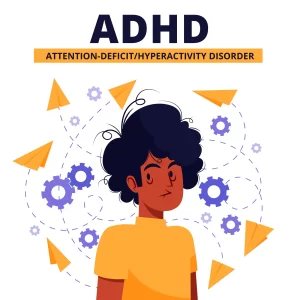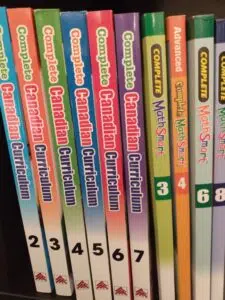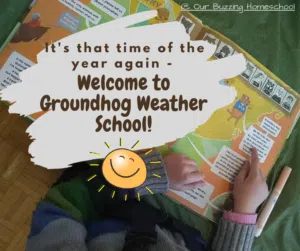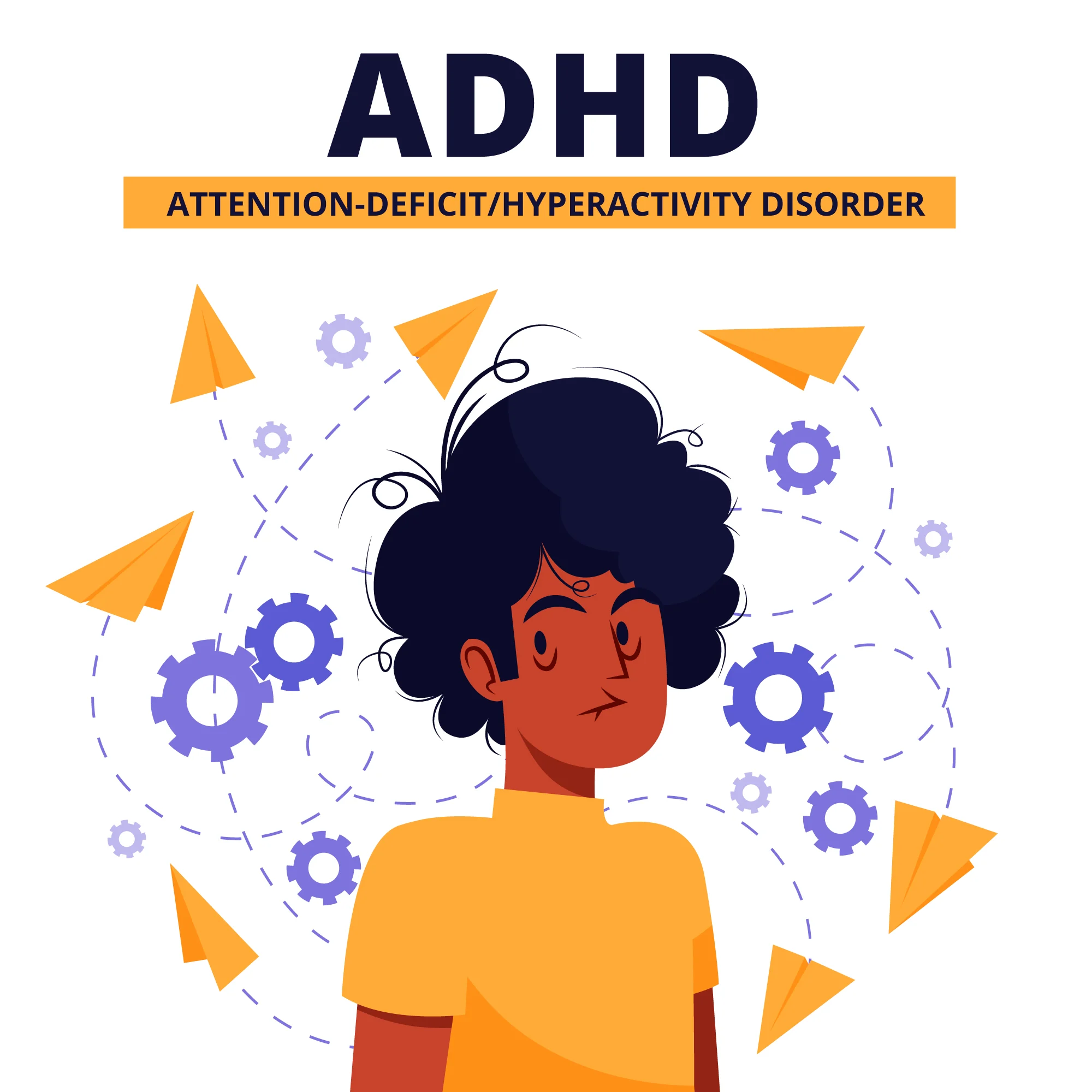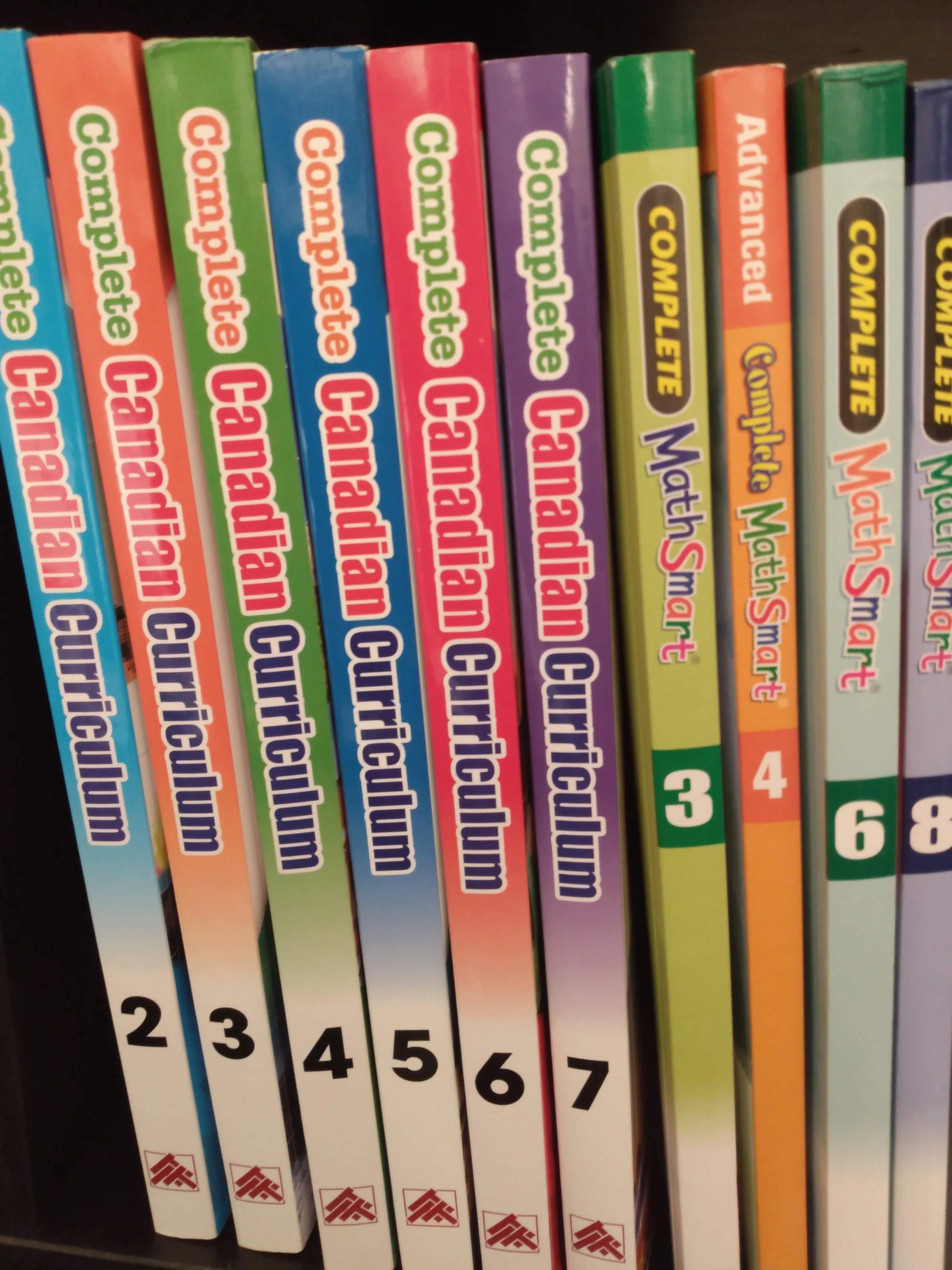So the Ontario curriculum is only a guideline for teachers and thankfully teaching parents don’t have to follow it all!
I’m sure many of you will be surprised when you read this document. And if you graduated school in Russia as I did (or probably any other former Soviet Union country), you will be shocked!
There is also no standard set of materials or textbooks whatsoever even some materials have words “Ontario curriculum” or “Canadian curriculum” on their covers (education in Canada is within provincial jurisdiction by the way). Those books are usually good to start with or for extra practice and review. Believe me, there are lots of great options on the market for any student and budget!
The Ontario curriculum provides a very general outline of expectations by the end of each school year, but does not specify HOW to teach those topics. Teachers are supposed to use it as a guideline only while developing lesson plans themselves and choosing materials.
In reality every school year there is a new teacher and occasional supply teachers. Each one with their very own way of planning and teaching and set of requirements. This lack of consistency seems to be a big disadvantage for many students.
With subjects like Science or Social Studies teachers have even more freedom to choose what excactly and how to teach and can bring their own views that do not necessarily align with your child’s interests and your family priorities and values.
Honestly, how much of science and social studies do you remember from school? Mine was very dry and boring and I’m learning much more now following D’s (and mine 
As I used to tutor math for a few years here in Toronto I am quite familiar with elementary math curriculum. Math curriculum was updated in 2020 but it seems more like re-grouping topics and adding cool labels “financial literacy” and “coding” rather than any fundamental change.
The Ontario curriculum seems to be very segmented and cluttered but at the same time expectations are often pretty low. There is too much and too early. Also the entire school system is teaching how to take tests but not preparing for adulthood.
Each math unit usually takes 2-3 weeks including all possible sick days, pizza days, holidays, strikes etc. Lots of memorization, not much concept and strategies teaching. It helps to pass the test but does not promote deep understanding. Most topics are taught in 1-3 lessons, then reviewed at the end-of-unit quiz and you can forget about it till next school year.
There are also no routine math talks that promote problem solving, cumulative reviews, cross curricula or other forms of reinforcement and mastering skills. And next year with a new teacher students might recall something or not…they don’t have any books or notes to refresh their memory and are also not used to the idea of independent learning. If they don’t remember how to do anything they are stuck and often use it as an excuse
In fact some important topics and life skills (like Number Sense, Mental Math Strategies, Measurements and also Logic and Problem Solving) while formally covered every year are not mastered for many years if at all. For whatever reason Critical Thinking is often seemed like a bonus and not mandatory parts of learning.
In my experience many students lose motivation and curiosity by the first grade. They are lost and don’t understand why on the Earth they need to learn this or that particular topic when they don’t see a big picture and also know that this topic will be over in a week or two and they won’t go back till next year.
HOW IT COULD BE DONE DIFFERENTLY?
In our homeschool we are only learning topics that I feel D. can grasp and master at least at some level, not just “cover”. All others are put on the list for the next school year, it does not hurt, really.
Let’s take the Time Unit for example. For most children 1-2 lessons are not enough to master new skills like telling time or calculating elapsed time. And both of those are important life skills and 6-year-olds are usually perfectly capable of learning it, it’s not rocket science – just addition and subtraction. It’s still a standard in Russia to teach and master telling time and elapsed time at 6-7 years old.
Both old and new Ontario math curricula stretch telling time for a few years and elapsed time only started in grade 4. We successfully worked on a Time unit with D. in her grade 1 year – calendar, telling time till minute using analog and digital clocks, special words like half and quarter, solving simple problems by determining elapsed hours and minutes. It took much longer than a few weeks to master it but now she owns this knowledge and can apply it to real life situations that is my ultimate goal.
————————————————————————–
Well, it turned out to be the longest post ever. The bottom line is you do not have to follow the Ontario curriculum as homeschoolers.
If you feel like you need a curriculum for some subjects, look into homeschool curriculum. Most (if not all) of them have step-by-step teachers/parents guide and activities/assignments for students. There are some pros and cons of actually following the Ontario guideline but only if you choose to.
My favorite homeschool math curriculum is Math Mammoth – paper based, open-n-go, solid, flexible and affordable. You can find my review here .
#homeschooling101 #curriculum #ontario #ontariocurriculum #math




